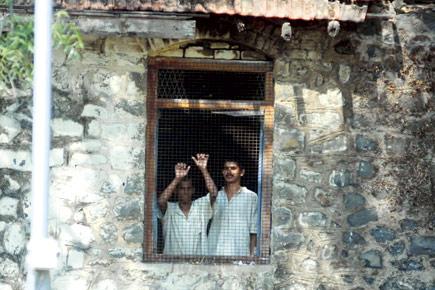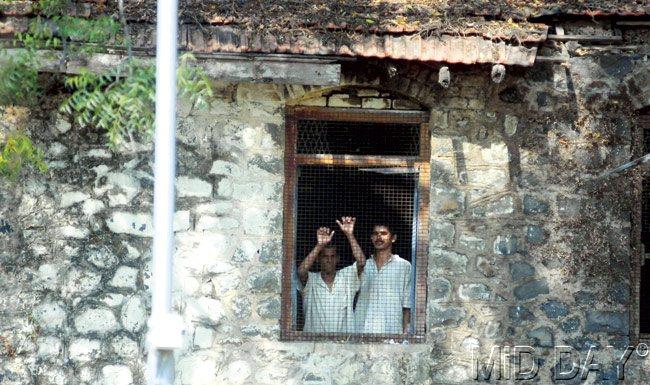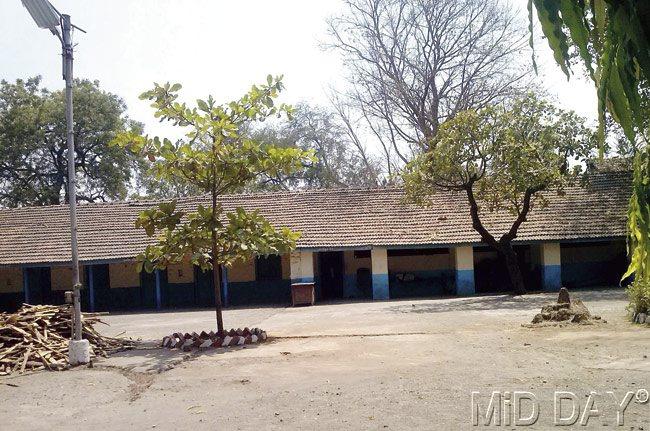People who are convicted for beggary, which is deemed to be a crime by law, are sent to a home near Ambernath, where they are made to do hard physical labour, but paid a pittance

Beggars who are convicted face a plight that is actually worse than being on the streets. As per the law, beggary is a crime and people who are convicted for it are housed in a beggars’ home in Jambun village, near Ambernath.
ADVERTISEMENT

The beggars’ home (above) at Ambernath has no vocational training facilities, and inmates get no visitors. Nearly 9 of the 77 inmates are undergoing treatment for mental illnesses. Yet, they are still made to do physical labour. Pics /Sameer Markande
mid-day had reported about the condition of beggars at the Chembur beggars’ home and highlighted how many of the inmates here are physically and mentally ill (‘Beware! You could be next inmate at beggars’ home’, March 26).

After the police round up people for begging, they are kept at the Chembur home. If they are convicted for the crime, they are shifted to the Ambernath home.

mid-day report on Chembur Beggars’ Home on March 26
Quite dreadful
The home is about 8 km away from Ambernath railway station, and the ‘convicts’ are lodged in the three barracks. They are made to toil in the fields and do all other kinds of work. While the law says that even convicted prisoners are entitled to Rs 27 a day, these beggars earn Rs 5 a month.
Officials said there are currently 77 convicted beggars (age group of 18-70 years). Of these, nearly nine are undergoing treatment for mental illnesses, while one is being treated for tuberculosis. Inmates get no visitors, are cut off from the outside world, and live in unhygienic conditions and eat poor quality food.
Vijay Sony (65), an inmate who worked as a waiter in Mumbai for nearly three decades, is unable to recall his past; all he remembers that he was picked up by cops one night while sleeping on the pavement, and sent to the Chembur home, which is the receiving centre, and then landed up here. When asked about his family, he replied with moist eyes, “I am not married. I have no relatives.”
No training
While regular convicted prisoners are given vocational training like carpentry, tailoring, bakery etc, and are paid a daily allowance for being skilled, semi-skilled and unskilled workers, there is no such thing here.
The post for a tailor has been vacant for months and so is the carpentry section, which seldom trains inmates. Farming is the only activity that happens, only between June and November. Inmates produce rice and vegetables in the 30 acres of land near the home.
The centre has a capacity of 150 inmates. The home was earlier a school for the village, but people demanded that the home should be away from large populations.
Hence, the centre was shifted from Ulhasnagar to Jambun. It started on October 1, 1972. Of the 28 sanctioned posts, only 16 are filled. About R40.5 lakh is spent on their salaries, from the total R52-lakh budget, with R38,000 spent on stationery and R43,000 on other utilities like phone, electricity etc.
 Subscribe today by clicking the link and stay updated with the latest news!" Click here!
Subscribe today by clicking the link and stay updated with the latest news!" Click here!






